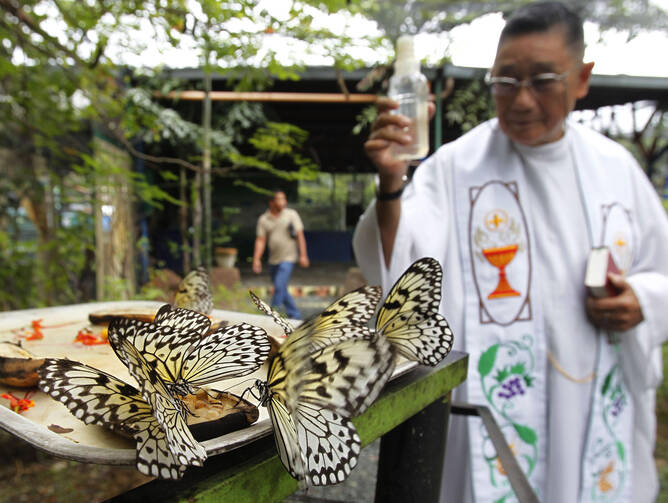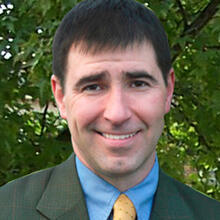That Pope Francis’ forthcoming encyclical on the environment will be an important event for both the church and global civil society is abundantly clear in the very public jostling to disarm and discredit it before its release.
Francis will exercise his teaching authority into a headwind provided by the profoundly skilled messaging professionals at various climate denial and neo-liberal think tanks. These will do anything to change the subject from the major theological arguments of the encyclical. We’ve already seen the several arguments that will be deployed: papal authority cannot pronounce on a matter of science, environmental concern equals population control, the pope will alienate conservative Catholics. The smoke screen industry will find ready support in the press. The political read is an easier story to tell.
Keeping the theological arguments of the encyclical in play will be a difficult task.
Here I offer an overview of the theological themes Cardinal Peter Turkson touched upon in his address “Together for the Stewardship of Creation” at the Vatican summit “Protect the Earth, Dignify Humanity. The Moral Dimensions of Climate Change and Sustainable Development.” His address made many powerful and specific moral challenges, but here I will focus only on the theological framework, since that is what is most danger of being overlooked. (See Michael Peppard’s fine overview of Cardinal Turkson’s Trócaire Lecture in Ireland in March.)
1. The Natural World is a Gift from God the Creator. Cardinal Turkson invokes the account of Eden from Genesis. “The planet Earth,” is the “garden that was given to us as our home.”
Human beings are part of nature. From conception to the moment of death, the life of every person is integrated with and sustained by the awesome panoply of natural processes. This calls for a reciprocal response on the part of humanity – to nourish and sustain the earth, the garden, that in turn nourishes and sustains us. Today, the ever-accelerating burning of fossil fuels that powers our economic engine is disrupting the earth’s delicate ecological balance on almost-unfathomable scale.
This offers a decidedly relational account of the human place within creation—a correction to widespread and well-establish interpretations that emphasize the difference between humans and the rest of creation. This is a clear thread of the Biblical understanding of creation. (See Genesis on the 6th day – God looked at everything he had made, and found it very good) but one that has long been subordinated to more dominionist elements of the text.
2. While the problem of climate change has a scientific dimension, it is ultimately a manifestation the disharmony caused by human sin.
In our recklessness, we are traversing some of the planet’s most fundamental natural boundaries. And the lesson from the Garden of Eden still rings true today—pride, hubris, self-centredness are always perilous, indeed destructive. The very technology that has brought great reward is now poised to bring great ruin.
Genesis is quite clear that human sinfulness results not only in disharmony with God and between humans, but also damages the rest of creation. Although the church has been slow to awake to the environmental crises we have created, the tradition has always spoken of intemperance and excessive consumption. Although it learns the astounding scope of the damage we are wreaking from contemporary environmental science, it has known the power of human destructiveness since Genesis. “Accursed is the soil because of you.”
3. For a response, Cardinal Turkson turns to the Doctrine of creation in the Image of God.
This is the foundation of human dignity and the need to work for sustainable development:
Everything stems from the essential principle that we are made in the image and likeness of God, and thus possessing an innate dignity that can never be denied, degraded, or denigrated. That means treating every single person as a brother or a sister – with a relationship based on respect, reconciliation, and solidarity.
It is also the foundation for respect and care for the rest of creation:
It also means recognizing that everything that God has created is good, precious, and valuable – and that God has given all of us this planet as a gift, to provide for our needs. And the correct response to receiving such a magnificent gift is surely one of gratitude, love and respect.
Here the Imago Dei is understood in terms of the continuity between humans and other creatures, rather than a fundamental discontinuity. We are all creatures of God and shine forth the goodness of our Creator.
4. Tilling and Keeping
According to the Book of Genesis, God the Creator charged us to till the earth and to keep it (Gn 2:15). These balanced concepts of “tilling” and “keeping” imply a vital and reciprocal relationship between humanity and the created world….. At the same time, the prophet Isaiah brilliantly links the environmental degradation with human behaviour: “The earth languishes for the sins of man.”
It is from this Biblical perspective that the Church judges human activity. “It is blatantly clear that we have “tilled too much” and “kept too little.” Our relationship with the Creator; with our neighbor, especially the poor; and with the environment has become fundamentally “unkept.”
5. The Moral Imperative of “Openess to Relationship”
This is an all-embracing moral imperative: to protect and care for both creation, our garden home, and the human person who dwells herein – and to take action to achieve this. If the dominant, pervasive ethos is selfishness and individualism, sustainable development will not come about. For progress towards sustainability requires a fundamental openness to relationship or, in other words, justice and responsibility, opening up new avenues of solidarity.
This reprises and broadens Pope Saint John Paul II’s teaching concerning solidarity. In On Social Concern John Paul argued that the solidarity is a virtuous response to the fact of our human interdependence. Cardinal Turkson’s argument holds the promise that the encyclical will extend this to all of creation.
We are certainly every bit as dependent on the Earth and all the other creatures with which we dwell. Yet the system we have build hides those connections from us. We don’t see the fields that grow our food, the hands that sow and harvest it for us, or the other creatures we are displacing. One essential part of correcting what Francis has called the “globalization of indifference” is to intentionally attend to these relationships and respond to them morally. “A fundamental openness towards relationship” is a promising suggestion of the teaching of the forthcoming encyclical.
In his Trócaire Lecture in Ireland, on March 5, Cardinal Turkson described this obligation to respect relationship in powerful, biblical terms:
Justice in this context is essentially a relational term. Its defining quality is fidelity to the demands of the threefold relationship within which each of us stands and upon which each of us depends for life itself: our relationship with the Creator, with our neighbour, and with the natural environment in which we live. To neglect or violate one of these relationships is an offence, quite literally a sin.
Cardinal Turkson ends with a reflection on the Pope’s namesake St. Francis of Assisi.
These religious insights can help orient and integrate human beings within the wider universe, to identify what is truly valuable, what we protect and sustain as sacred. Within the Christian tradition, what more radical charter for sustainable development can we find than the Beatitudes; the call for generosity, mercy, and encounter that permeates Evangelii Gaudium? What better role model for the virtues of sustainable development than St. Francis of Assisi, who lived his life based on kinship and fraternity with creation, creatures, and the poor?
St. Francis is an obvious choice as an exemplar of one who felt kinship with all creation. His Canticle of Brother Sun and Sister Moon is one of the greatest verbal expression of this theological kinship of creation in our tradition. The story of the taming of the wolf at Gubbio raises the truly theological challenge of redeemed human relationship with creation—a true spiritual and eschatological challenge to seeing nature as “red in tooth and claw.”
St. Francis is a fitting choice for another reason. Lynn White’s seminal essay “The Historical Roots of Our Ecological Crisis” argued that the Christian doctrine of the Imago Dei separated humans from the rest of creation, reducing all things to mere instruments to serve human purposes. White did not, however, argue that this dualism was essential to Christianity. He closed the essay with a discussion of St. Francis’ sense of kinship with nature as a possible alternative path.
The greatest spiritual revolutionary in Western history, Saint Francis, proposed what he thought was an alternative Christian view of nature and man's relation to it; he tried to substitute the idea of the equality of all creatures, including man, for the idea of man's limitless rule of creation.
While White believed that St. Francis failed in this attempt, he held his theology out as offering a path to helping us “rethink and refeel our nature and destiny.” May the forthcoming encyclical help us all reimagine and act differently in the face of the many environmental crises we have brought about—through ignorance and insensitivity as much as through conscious intent.
Vincent J. Miller is Gudorf Chair in Catholic Theology and Culture at the University of Dayton. He is the author of Consuming Religion: Christian Faith and Practice in a Consumer Culture.








